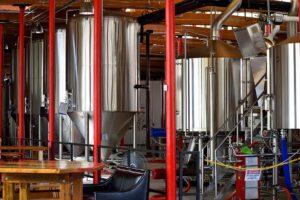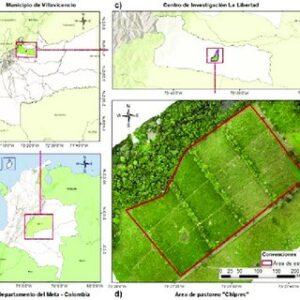Precision Fermentation: An Opportunity for Sustainable Growth in the Middle East
Introduction
As a sustainable and scalable solution, precision fermentation offers a sustainable and scalable solution to meet the rising global demand for food and reduce the environmental impacts of traditional agriculture. By utilizing this cutting-edge technology, a variety of food and beverage products can be produced without the use of traditional farming practices. Middle Eastern startups have been exploring precision fermentation in recent years, becoming a hotspot for this innovative technology. In this article, we explore the future of precision fermentation and explain how it is rapidly expanding in the Middle East, emphasizing the necessity of meticulous planning for start-up businesses seeking funding for the necessary equipment.
Precision Fermentation and its Potential

Precision fermentation, also known as microbial fermentation or cellular agriculture, involves the use of microorganisms to produce a variety of food and beverage products. Through the application of biotechnology, this process can produce meat substitutes, dairy alternatives, precision ingredients, and other highly sought-after products. The innovative approach offers several advantages, including reduced land and water requirements, lower greenhouse gas emissions, and the elimination of animal cruelty.
The Middle East’s interest in precision fermentation stems from its vision to become a global leader in sustainable and future-proof food production. With arid landscapes and limited agricultural resources, the region faces challenges in traditional farming practices. By utilizing advanced technologies to create a more sustainable food ecosystem, precision fermentation provides a feasible solution.
The Growth Of Precision Fermentation In The Middle East
Several countries in the Middle East have seen rapid growth in precision fermentation startups, including the United Arab Emirates, Saudi Arabia, and Israel. A number of these nations are investing heavily in research and development, innovation hubs, and infrastructure to accelerate the development of precision fermentation across the region.
One key factor contributing to the growth of precision fermentation in the Middle East is the support and encouragement from governments and regulatory bodies. Governments recognize the potential of this technology to enhance food security, reduce imports, and mitigate the environmental impact of traditional agriculture. As a result, they are providing funding, incentives, and streamlined regulatory frameworks to facilitate the establishment and growth of precision fermentation startups.
The Middle East’s growing interest in precision fermentation is also driven by a shift in consumer preferences. There is an increasing demand for sustainable and plant-based alternatives to traditional animal products, driven by health concerns, ethical considerations, and environmental awareness. Precision fermentation startups are addressing these demands by producing lab-grown meats, dairy-free milk, and other innovative food products that closely mimic their conventional counterparts.
Business Planning And Funding For Start-Ups
Planning for the launch of a precision fermentation startup is essential, particularly when it comes to obtaining funding for the necessary equipment and infrastructure. To achieve precision fermentation, significant investments are required in terms of research and development, bioreactors, lab facilities, and quality control systems due to the high-tech nature of the process.
An aspiring entrepreneur must develop a comprehensive business plan that describes their vision, market analysis, competitive advantage, financial projections, and a detailed roadmap for scaling up operations to secure funding. The plan should also emphasize the potential for long-term profitability, sustainable growth, and a positive impact on the environment. Precision fermentation startups may receive funding from investors, venture capitalists, and government grants.
As well, startups may reduce their financial burden by establishing strategic partnerships and collaborations with research institutions, universities, and industry experts. In addition, research institutions, universities, and industry experts can provide access to expertise, mentorship, and shared resources.
Final Thoughts
The use of precision fermentation is revolutionizing the Middle East’s food industry by offering sustainable alternatives to traditional farming practices. Using this revolutionary technology, we can address the region’s food security concerns while reducing the environmental footprint. There are several factors contributing to the growth of precision fermentation startups in the Middle East, including a favourable regulatory environment, an increase in consumer demand for sustainable products, and governmental support.

 Our Samples
Our Samples  Support
Support 





Fahad Sarwar
July 23, 2023Great article